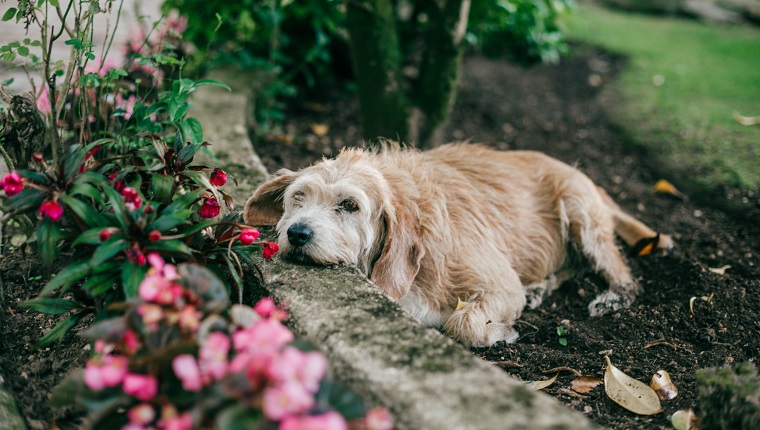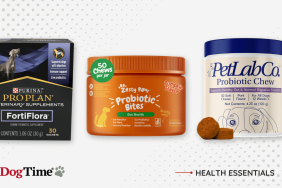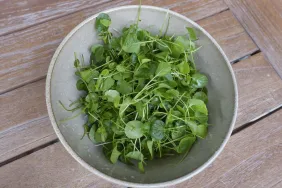Most dogs are paws-ionate about spending time outdoors. We do our best to fence out predators and provide them plenty of shade, water, and toys, but we often forget about common pet poisons.
We’re talking about plants your pup may encounter – both outdoors and in – that are hazardous to their health. But with a little thought and effort, your pets and yard can live in harmony.
The list of potentially dangerous plants is doggone long, but we’ll look at some of the most common plants your pooch is likely to encounter in the backyard, in the house, or on a stroll.
Common Plants That Are Pet Poisons
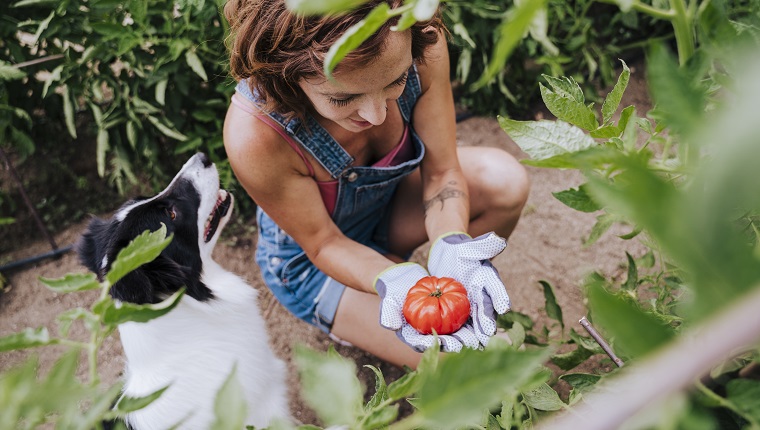
This list may surprise you. For example, aloe vera is considered one of the most beneficial plants for humans. We rub it on our skin and probably have a host of products in our homes that contain it.
But it’s a no-no for dogs. Just a taste of aloe vera can cause vomiting, diarrhea, tremors, and nervous system problems.
Other plants your pet pal should steer clear of?
Ivy: Lovely as it is in the yard or home, dogs should avoid it.
- Symptoms – vomiting, diarrhea, stomach pain, excessive salivation, and drooling
Baby’s Breath: Sounds harmless, doesn’t it? Not for pups.
- Symptoms – vomiting, diarrhea
Grapes and raisins: Good for us, but not for them. Grapes and their products are among the most toxic for dogs.
- Symptoms – vomiting, dehydration, kidney failure
Tulips: A favorite in gardens and vases, but one of the most dangerous for your four-legged friend.
- Symptoms – stomach problems and nervous system depression – and sometimes death
Tomato plants: We humans relish our tomatoes fresh from the garden or container. They’re summer salad favorites. Not for a doggie diet, though.
- Symptoms – stomach issues. Slowed heart rate, general weakness
Holly: A holiday season must-have and a popular shrub in parts of the county. It’s a must-not-have for dogs.
- Symptoms – vomiting and diarrhea
Azalea and Rhododendron: These two common shrubs are American favorites, but they can be fatal for your pets.
- Symptoms: stomach problems, weakness, lowered heart rate
Begonia: It’s one of the most popular garden flowers, but it should be off-limits for dogs.
- Symptoms: Inflammation of the mouth is common, along with drooling and vomiting
Chrysanthemum: This is a cool-weather darling for many gardeners, but a threat to your pet’s health.
- Symptoms: Along with diarrhea and vomiting, look for a skin rash
Pot Is A Pet Peeve
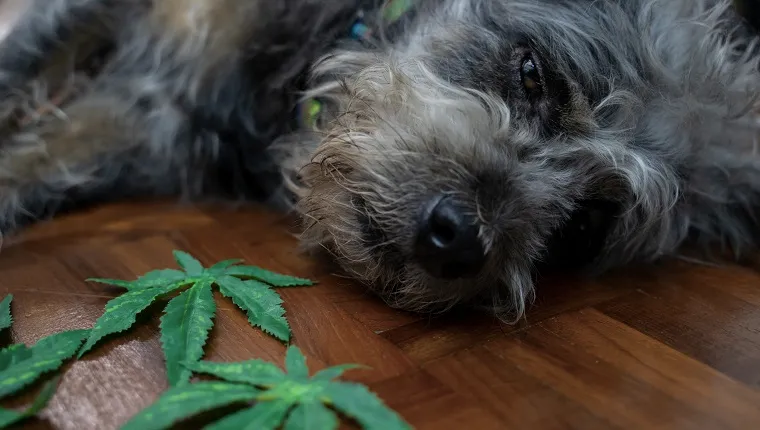
A word about marijuana:
Regardless of how you feel about cannabis, it is not good for dogs. Scientists think dogs have more brain receptors that are sensitive to marijuana than humans, which makes it more toxic.
So, no doobies for doggies, and don’t leave your brownies lying around. Chocolate isn’t the only thing that can kill them.
The list of plants that are potentially harmful to dogs is long. The ASPCA has compiled an extensive list that can be helpful when you’re taking your buddy for a walk or planning your landscape. They also have a list of safe plants.
Just because some plants pose a hazard doesn’t mean you should live in a plant-less environment. Plants are too beneficial to human health and wellbeing to discard entirely.
Keep the harmful ones out of your garden, don’t let your friend browse in other people’s yards, and keep your houseplants out of reach.
Yes, it’s tempting as parents to share our favorite foods and plants with our canine kids. But a good parent knows when to say “no,” and how to keep their pets out of danger. Of course, watch for any sign of illness in your pet and consult your veterinarian.
Do you have any of these plants around your home? Are there any other plants that pet parents should avoid? Let us know in the comments below!
Janine Macallister is a veterinarian’s assistant who loves to travel and hike and insists on taking her Siberian husky with her on all vacations. Her RV is fitted with a special seat belt harness and bed just for Dolly, who knows the rules of the road.
